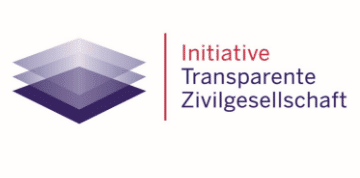Growing Together: Our Reforestation Efforts in Action
Protecting tropical rainforests and reforesting destroyed areas—this is how BOS secures the future of orangutans and many other animal and plant species on Borneo. Currently, we are primarily working in two extensive reforestation areas: in our “Lebenswald” project in Mawas, Indonesia, and in Sabah, Malaysia, where we are converting an oil palm plantation into a rainforest.
How it all began
The opening of BOS’s first orangutan rehabilitation center, Samboja Lestari, in East Kalimantan in 2001 marked the beginning of our initial reforestation project. Due to logging and fires, the 1,853-hectare area was reduced to nothing but a wasteland of grass and weeds. It all began here with the planting of the first tree. Today, Samboja Lestari is surrounded by a thriving secondary forest, even though setbacks, such as those following the catastrophic fires of 2015, occasionally occur, necessitating further reforestation efforts.
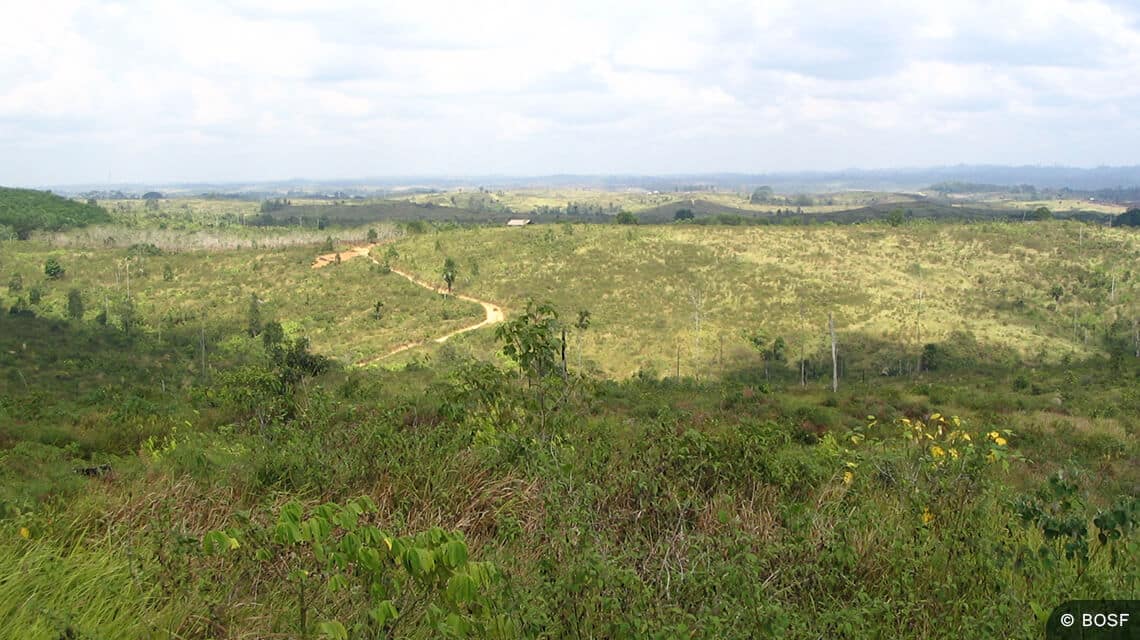
The Samboja Lestari rescue center area before it was reforested in 2004
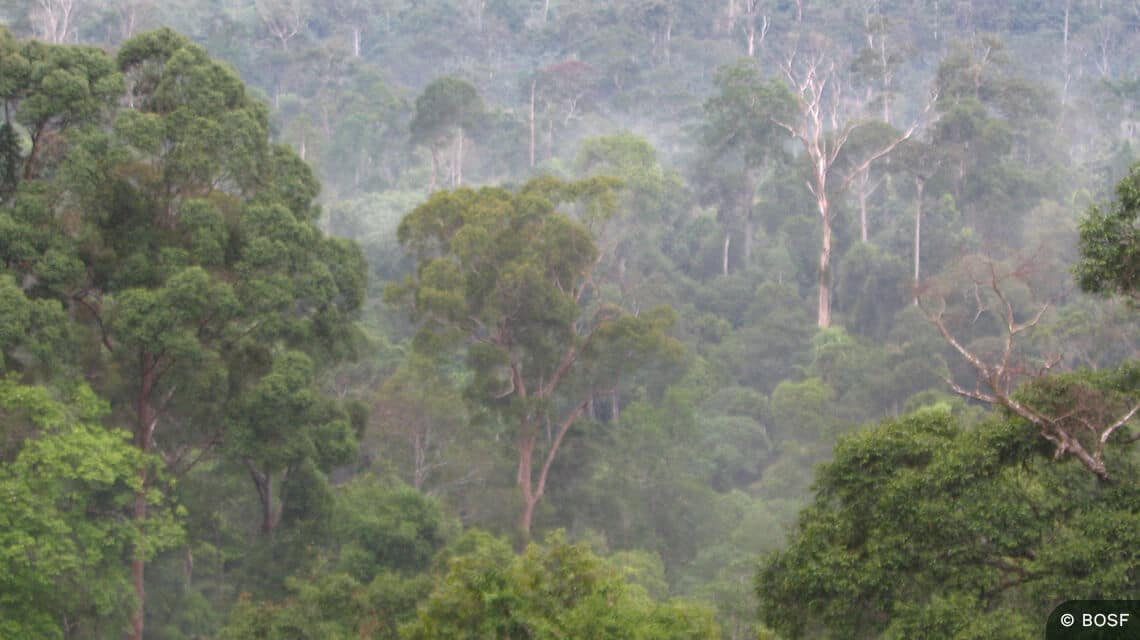
The Samboja Lestari Orangutan Rescue Center After Reforestation
Planting the Forest for Life: Join Our Green Journey
One of the most significant peat swamp forests in Indonesia is located in Mawas, Central Kalimantan, covering an area of approximately 300,000 hectares. Home to over 2,500 animals, it boasts one of the largest wild orangutan populations in Borneo. However, in recent decades, Mawas has experienced extensive deforestation. In the 1990s, thousands of hectares of forest were cleared to make way for rice cultivation, extensive drainage canals were excavated, and the peat swamp soil was desiccated. This ambitious project, known as the ‘Mega Rice Project,’ ultimately failed, leaving a legacy of destruction in its wake.
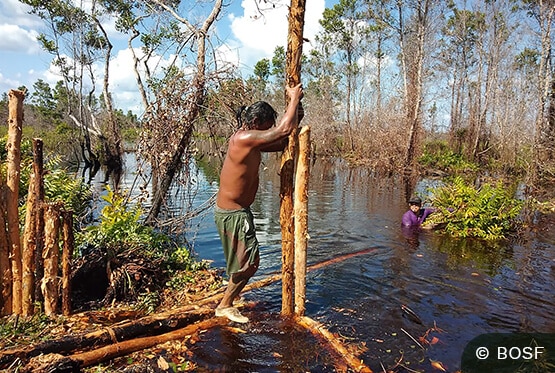
Dam Construction in Mawas Peat Swamp
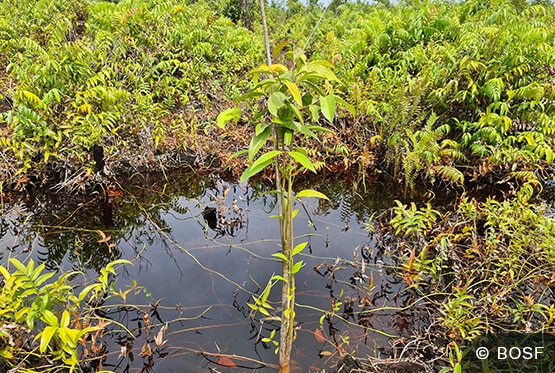
The Young Seedlings Should Be Cautiously Maintained
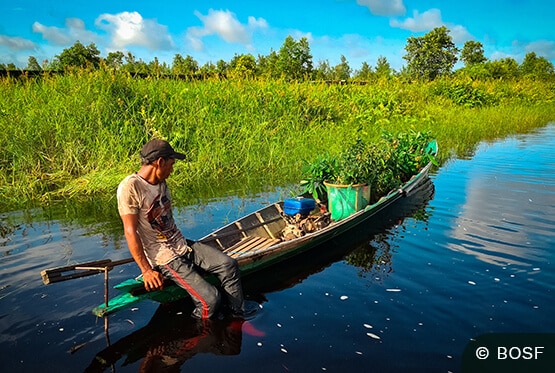
The Seedlings Are Transported by Boat from the Nursery to the Planting Area
One of the longstanding consequences of the drainage canals is their role in providing easy access to the existing forest for loggers. These canals were, and still are, utilized for systematic illegal forest clearing and the transportation of logs.
BOS (Borneo Orangutan Survival) is taking action by blocking the canals, wetting the peat swamp, and initiating the restoration of the rainforest. This monumental task is being carried out step by step. In collaboration with local communities, we are establishing new habitats here—for animals, plants, and people alike. A new forest fpr life is gradually taking shape.
Transforming Palm Oil Plantations into Flourishing Rainforests
In Sabah, the Malaysian part of Borneo, we are collaborating with our partner Rhino and Forest Fund (RFF) on a scientific pilot project. Palm oil plantations are being acquired by RFF with the support of BOS Germany to transform them into thriving secondary rainforests through reforestation.

With this project, we are reclaiming vital habitats and natural areas from the palm oil industry. The initial stage aims to establish a wildlife corridor connecting the Tabin Wildlife Reserve with the Kulamba Wildlife Reserve. Currently, these two nature reserves in eastern Sabah are fragmented by oil palm plantations. Consequently, populations of numerous endangered wildlife species, including orangutans and pygmy elephants, remain isolated from each other, further diminishing the survival prospects of these threatened species.
Through the creation of the wildlife corridor, RFF and BOS Germany are paving the way for a brighter future for orangutans, Bornean elephants, and many other endangered species. RFF and BOS Germany are actively planning the acquisition and restoration of additional palm oil plantations. The long-term objective is to connect these nature reserves to the ‘Heart of Borneo’ area through dedicated wildlife corridors.
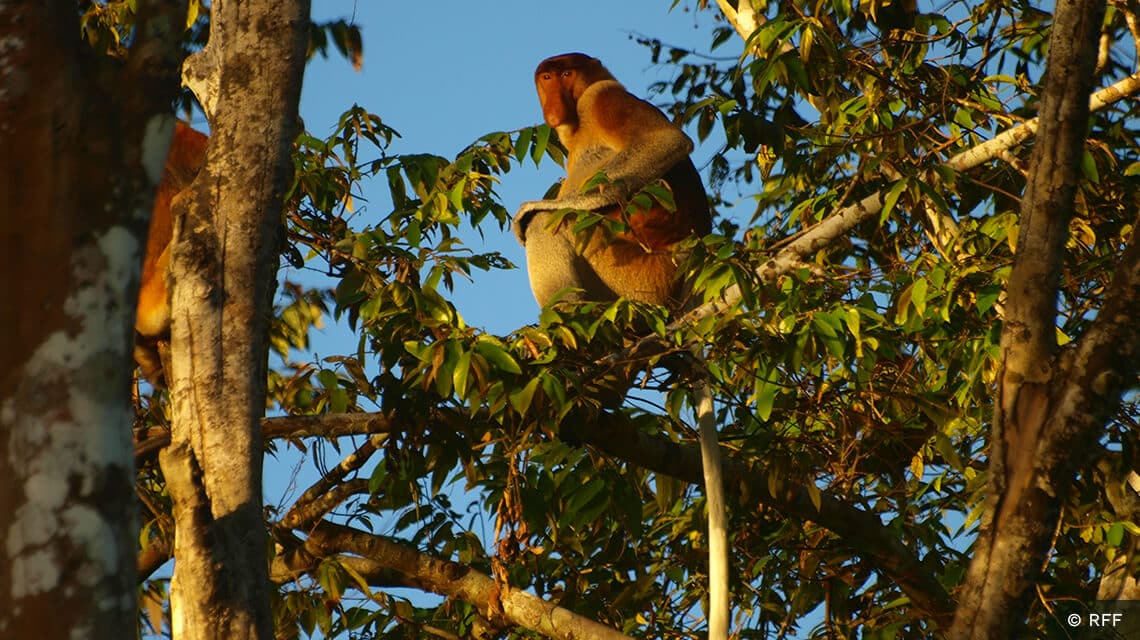
Proboscis monkey in the treetops
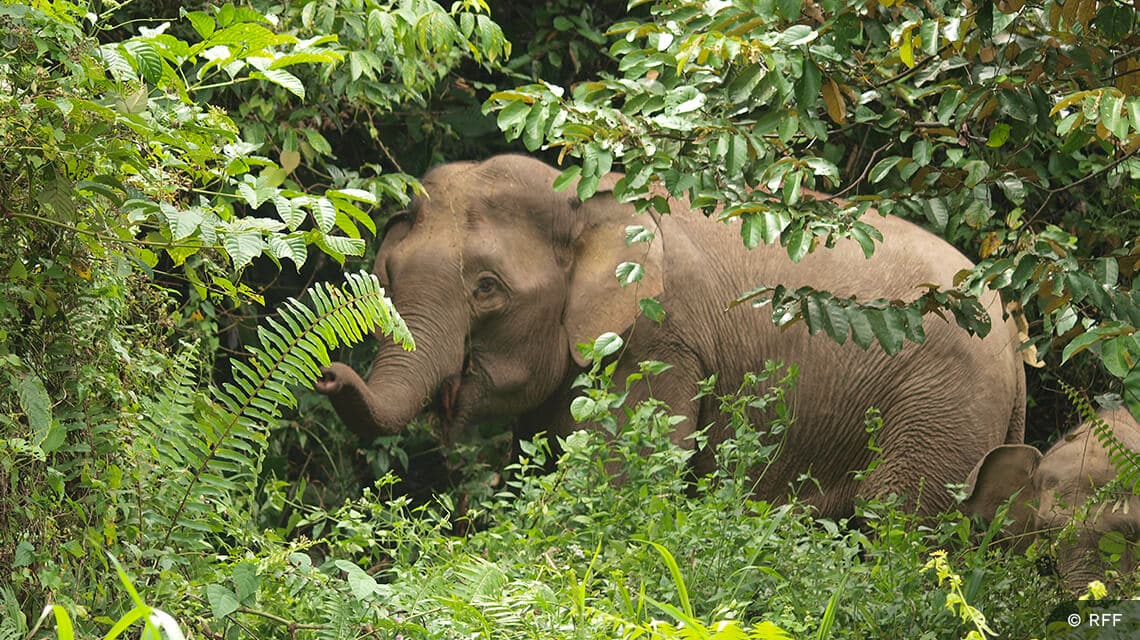
Bornean elephant in the area of Sabah
Forest for life
Save the rainforest
Saving the orangutans cannot succeed without preserving their habitat! Mawas is a thousand-year-old peat swamp rainforest housing one of the largest wild orangutan populations in Indonesia. Although significant portions of this unique rainforest were lost as part of a megaproject in the 1990s.
Now, we have a vision: To restore the forest and make it a home for even more orangutans.

You have a question?
Donations are a matter of trust
Transparent use of funds is a matter of course for us. In September 2013, we joined the a non profit initiative of Transparency International Germany and signed its declaration of commitment.
